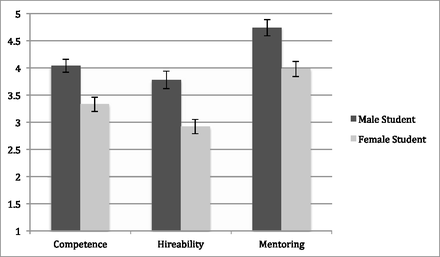Culture January 18, 2017


For the first two years of my life, people constantly mistook me for a boy. I don’t blame them: I had no hair, looked great in blue and, oh yeah – my name is Casey.
As any woman with a gender neutral (or unisex) name can attest, it isn’t unusual to hear, “I thought you’d be a guy!” a couple times a month. I’m not alone in this predicament, either. In fact, gender neutral baby names have increased by ninety percent since 1985. Need some examples? In 2015, “Hayden,” “Charlie,” “Emerson” and “Rowan” were the most popular unisex names, though several celebrities made news with their unique choices, such as Blake Lively and Ryan Reynolds, who shocked fans by naming their daughter, “James.”
According to BabyCenter’s Global Editor-in-Chief Linda Murray, this trend likely reflects the fact that “millennials are an open-minded and accepting group, and they don’t want their children to feel pressured to conform to stereotypes that might be restrictive.”
But if my twenty-one years of “Casey” experience has taught me anything, it’s that having a gender neutral name results in more than just freedom from stereotypes – and new research is reaching the same conclusion. In fact, giving your daughter a gender-neutral name may be one way you can help her become the business woman of her dreams.
READ MORE: Carrie Fisher Raised Her Daughter Gender-Neutral; Why You Should, Too
How? It’s a simple case of mistaken identity. Even though people no longer mistake me for a boy when they see me (thank you, puberty), my name is a bit more ambiguous. I’ve received mail addressed to Mr. Casey Cromwell; taken state mandated tests where “male” has already been bubbled in; and have sat in classes with male “Casey’s” more times than I can count. While these errors can be annoying at times, I never thought too much of them.
I’m too old to be correcting people that I am a “she” not a “he” and explaining that “Jordan” is a gender neutral name ?
— Jordan (@jweltyyy) January 6, 2017
not to sound too millennial but id definitely name my child a gender neutral name to make their life easier
— lucy ? (@lionhhearted) January 16, 2017
Until, that is, I started applying for jobs and realized that, when you look just at my resume, it’s impossible for people to tell whether “Casey” is an accomplished woman – or man.
And, as sad as it is, that gender ambiguity probably works in my favor.
In the 1990s, researchers found that college students gave the same essay a higher score when it was given a male author versus a female one, and that works written by authors with ambiguous first names or an initial were rated higher than works by explicitly female authors. In a 2012 study, the findings were similarly worrisome. Researchers presented an application of a student applying for a lab manager position to a group of scientists. Half of them received an application with a female name, and half with a male name. Even though the application was exactly the same, the “female” applicants were rated significantly lower than their “male” counterparts.


Competence, hireability, and mentoring by student gender condition (collapsed across faculty gender). All student gender differences are significant (P < 0.001).
Chart included in study from Pnas.org.
If you’re intending to go into the field of math or science, having a gender neutral name may even be the difference between success and failure. In 2005, researcher David Figlio compared the phonemic sounds of names and discovered that girls with relatively feminine sounding names are more likely to choose humanities courses and less likely to pursue math and science. Of course, correlation isn’t causation, with Figlio concluding, “Did the parents choose that [their daughter’s future course of study] when they were choosing the name or did the name end up shaping their behavior toward their daughter?”
READ MORE: Androgynous Style in the Fashion Industry
For lawyers, it’s also better to be a Leslie or Cameron than a Lucy or Camille. One study found that women with masculine names tended to be more successful in law careers. I recently spoke with (female) lawyer Billie Elliott McAuliffe to see if she had seen these studies play out in her own career. The results? A big yes.
“Because so much of legal negotiations now occur through the written word (mostly emailed documents), I think that my ‘masculine’ name probably helps me to be more assertive without the person on the other side just assuming I am ‘witchy.’ So, I do think it has helped me,” McAuliffe explains. “I think it was probably the most effective at getting my foot in the door during the interview process. Numerous times over the years I have shown up for an interview and I can see on the person’s face that they are surprised that I am a woman.”
Last year, John Greathouse at The Wall Street Journal went viral on Twitter (in a very bad way, I might add) for suggesting that female workers in the tech industry hide their gender online by using initials or a unisex name, and eliminating photos. According to his logic: “A neutral online persona will encourage more people to evaluate your work products and experiences based on their inherent qualities, unclouded by preconceptions.”
What we need from you @johngreathouse is to NORMALIZE and SIGNALBOOST respect for women, not give dealing-w-patriarchy protips.
— Laine Nooney @ NOPE (@Sierra_OffLine) September 29, 2016
Why Women In Tech Might Consider Just Killing A Man And Wearing His Skin To Interviews
— Matthew Garrett (@mjg59) September 29, 2016
pic.twitter.com/rDfWeRePDP
— John Greathouse (@johngreathouse) September 29, 2016
In a way, that’s what having a gender neutral name allows women like me and McAuliffe to effortlessly do all the time: show our strengths and abilities without being hampered by any feminine associations triggered by girly names. Is it sad that women might not get this chance if they’re named Susan or Elizabeth? Absolutely! But that doesn’t mean I’m any less proud or appreciative of my gender neutral name.
As McAuliffe puts it: “I want to be seen, in my career, as a great lawyer – not that even though I am a woman, I am a great lawyer or not that even though I am the mother of triplets, I am still a great lawyer. I just want to be known as a great lawyer. If having a masculine sounding name, helps me to avoid those mind-frames from people and to be just seen for the work product/end results that I produce, then thank you Mom and Dad for naming me ‘Billee.'”
Because, the truth is, I’m grateful for my gender neutral name for so many reasons. It’s shown me that I don’t have to fit “inside the box” to be a successful, creative, worthy human being. It’s definitely started a fair share of interesting conversations – and, when I introduce myself to new people, I can always say, “I’m Casey. Like the alphabet.” And, as I develop further in my career, I’m sure there will be time where I thank my unisex name for letting people see me before they see my gender.
For now, all I can say is that being a woman with a gender neutral name has it’s share of disadvantages – like phone calls where I have to say: “No, this isn’t Casey Cromwell’s wife – this is Casey Cromwell” – and advantages, especially in the business world. And I know that I won’t ever change my name.
READ MORE: 5 Inspiring Female Authors Who Wrote Under Male Pen Names
The one trend that we might want to change, though? Let’s not just make gender neutral names for girls a trend. How about we start naming our sons Ashley and Anna, too? Because the less specific names are associated with either pink or blue nurseries, the more freedom everyone can experience with their names – whether you have a gender neutral one, or not.